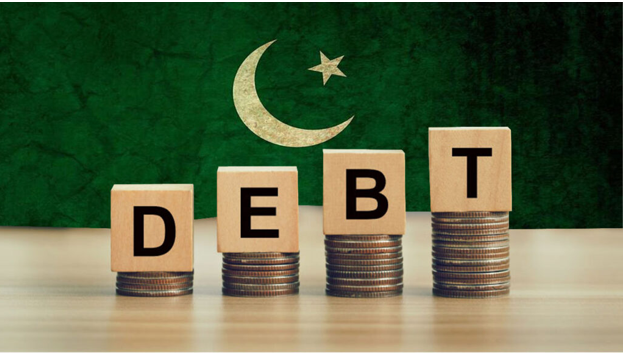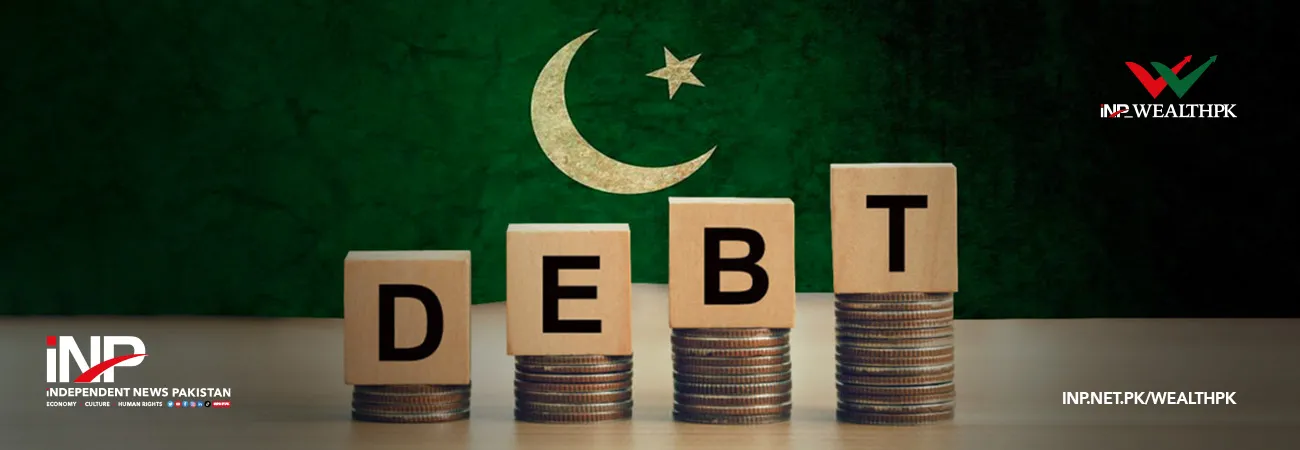INP-WealthPk
Moaaz Manzoor
Though Pakistan's debt has fallen due to a decrease in the policy rate, concerns over fiscal sustainability persist because of high-interest payments, reliance on debt for consumption and challenges in channeling funds into productive investments, reports WealthPK.

Speaking to WealthPK, Dr Nasir Iqbal, head of Macro Policy Lab, Pakistan Institute of Development Economics, stressed that the key to sustainable debt lied in its purpose. He explained, "When debt is used for investment and the return exceeds the interest rate, the debt becomes sustainable." However, he pointed out that in Pakistan's case, much of the borrowing was for consumption, such as covering current expenditures, rather than for growth-oriented investments. "This reliance on debt for non-productive purposes means that the country faces difficulty in managing its obligations over time."
Iqbal said: "Pakistan's debt cannot be sustainable in the long-term unless it is used for investment purposes, productivity increases, and returns exceed interest payments." A significant concern, according to Iqbal, is the current method of borrowing. "The country has shifted away from borrowing directly from the central bank, opting instead to borrow from private banks. This shift has increased the cost of servicing the debt, as the interest rates on private bank loans are much higher. For instance, in the recent past, the domestic debt interest rates were around 22%, which contributed to an increasing portion of national revenue being allocated to debt servicing."
Iqbal further pointed out that this reliance on borrowing to meet previous debts meant that Pakistan had to keep borrowing to repay old loans, making it an unsustainable cycle. Ahmad Mobeen, a senior economist at S&P Global Market Intelligence, echoed similar concerns, offering a sobering outlook for the country's debt sustainability. He explained that Pakistan's external debt repayments were projected to represent about 4% of GDP and 16% of total foreign exchange earnings over the next five years. He noted that domestic debt servicing was expected to average 15% of GDP in the coming period.
"This is compounded by the fact that Pakistan has increasingly issued floating-rate debt, meaning that debt servicing costs will only decrease gradually." Mobeen stressed the urgency of addressing the issue of debt servicing, noting, "Pakistan ranks very high among emerging markets for the share of interest payments in total revenue." Furthermore, Mobeen emphasised the importance of meeting the performance criteria under the IMF Extended Fund Facility (EFF). He noted, "Meeting fiscal consolidation targets and securing timely concessional financing are critical for Pakistan to manage its debt repayments."
"These targets, which include maintaining fiscal discipline and ensuring consistent financing, are seen as key to avoiding a crisis. Without addressing the underlying structural issues in the economy, particularly those related to fiscal discipline, the country's debt burden could grow even more unmanageable," Mobeen warned. Although Pakistan's debt has decreased, the underlying issues of fiscal management and unsustainable borrowing remain. The country faces a growing challenge in shifting its debt structure from consumption-based borrowing to investment-oriented borrowing.
As Iqbal emphasised, "Debt used for consumption cannot be sustained in the long-term." Without increasing productivity and channeling debt into growth, Pakistan risks facing an even larger debt crisis in the years ahead. For Pakistan to ensure its fiscal stability, the country must implement structural reforms that focus on enhancing economic productivity and reducing dependency on debt for consumption.
Credit: INP-WealthPk













